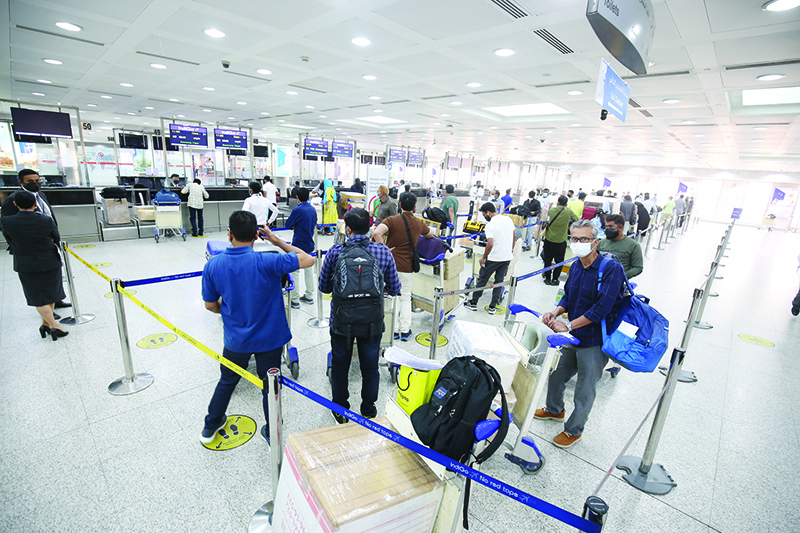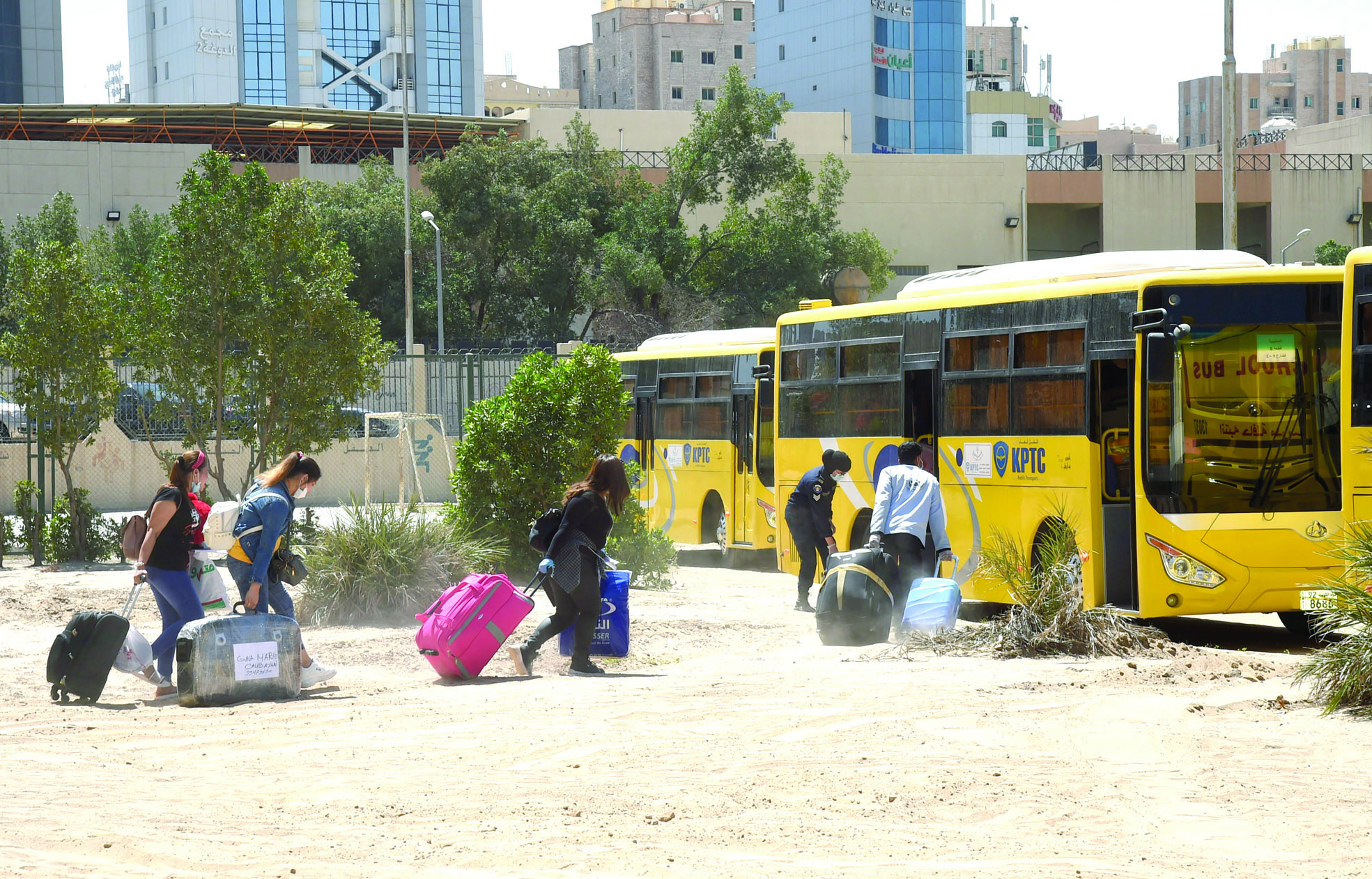 KUWAIT: More than 56,000 expats left Kuwait in the first half of 2021, raising total departures to around 190,000 since the start of the pandemic.
KUWAIT: More than 56,000 expats left Kuwait in the first half of 2021, raising total departures to around 190,000 since the start of the pandemic.
By Sajeev K Peter
As the year 2021 comes to a close, businesses in Kuwait continue their faltering journey towards recovery from the pandemic-induced slowdown amid an unprecedented shortage of expat labor. While a labor shortage remained acute in the domestic sector, the lack of experienced workers continues to haunt the hospitality, health, education and retail sectors in post-COVID Kuwait.
“I have a tough time managing my restaurant now with just nine employees, including two chefs and two waiters. Six of my employees went on vacation to their home countries last month after two years,” said Justine Anthony, who runs a small Filipino restaurant in Salmiya.
The country’s medium- and small-sized restaurants, cafes, fast-food chains, grocery shops (baqalas), private hospitals, clinics, salons and garment shops say they are unable to cater to the growing needs of customers due to the dearth of workers. The healthcare sector in the country is also experiencing the pressure of staff shortage in many departments amid a growing trend among doctors, nurses and paramedics to migrate to Western countries. The shortage of manpower is plaguing the gig economy as well in the country, including home delivery services.
Many people who spoke to Kuwait Times share the predicament of Anthony and admit that the labor crisis is unprecedented. The worker crunch is affecting several companies in Kuwait, particularly the services sector, derailing their efforts to turn around their businesses, they said.
 Nearly 200,000 expats departed Kuwait in one year since March 2020, according to a labor market report.
Nearly 200,000 expats departed Kuwait in one year since March 2020, according to a labor market report.
Recovery blues
Some businesses were forced to lay off their staff during the lockdown, while many expats who worked in restaurants, salons and grocery shops left the country for good. As the country reopened and the situation retuned to near normal, many businesses managed to reopen with available employees. However, they found out that running a business with a skeletal staff is not easy.
“As of now, recruitment of foreign workers has been suspended. And there is a severe scarcity of experienced labor such as nurses, restaurant workers, bakers, barbers, accountants and clerks in the local market,” said Mohammad Iqbal, who works at a manpower recruiting agency.
According to official estimates, more than 56,000 expats left Kuwait in the first half of 2021, raising total departures to around 190,000 since the start of the pandemic. A labor market report said nearly 200,000 expats departed Kuwait in one year since March 2020. The country’s total population reached roughly 4.628 million at the end of June 2021, according to the latest demographics and labor force statistics issued by the Public Authority for Civil Information (PACI).
Picking up pieces
“I could not stop them as they were going to India after two years. Many have had some tragic family issues as well,” said Riyaz Khan, a branch manager at a garment shop in Kuwait City. Admitting that their garment business has not fully recovered from the slowdown, Khan said they find it hard to run their shops without enough staff, especially as business is picking up the pieces from the ruins of the crisis.
The COVID-19 lockdowns wrought havoc across the world and businesses in Kuwait, both large and small, were heavily impacted. The pandemic has made many careers and jobs obsolete and new jobs have surfaced, forcing many expats to resort to juggling work. “Many have switched work, creating a vacuum at some organizations and crises at many places,” Khan pointed out.
“Small businesses bore the brunt of the pandemic. I personally know many businesses have shuttered permanently in the last two years. Although some have managed to reopen, they are still facing numerous problems. And the labor shortage, particularly the paucity of specialized workers, is probably the most severe problem. Definitely, this will negatively impact the recovery momentum in the post-COVID era,” added Iqbal.




